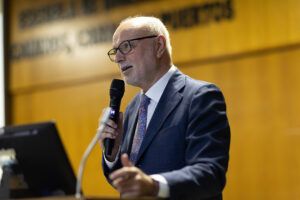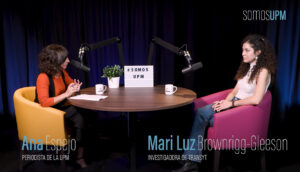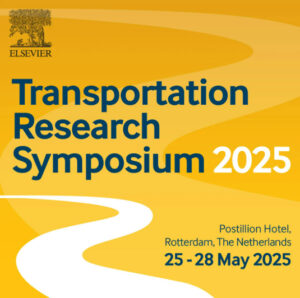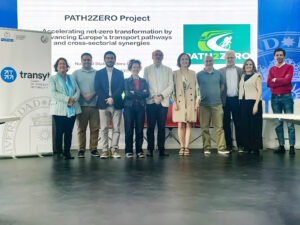[28-02-2014]
5th City-HUB Stakeholder Workshop: Principales Conclusiones
El pasado 3 de febrero de 2014 se celebró en Londrés el 2º Workshop con el título “Smart & efficient Interchanges: Design and Operation”.
[28-02-2014]
5th City-HUB Stakeholder Workshop: Principales Conclusiones
El pasado 3 de febrero de 2014 se celebró en Londrés el 2º Workshop con el título “Smart & efficient Interchanges: Design and Operation”
Su objetivo fue dar a conocer las principales conclusiones obtenidas hasta el momento.
The 2nd City-HUB Workshop, “Smart & efficient Interchanges: Design and operation”, took place in London on the 3rd of February 2014, with approximately 40 attendees. Selected “key experts” participated in the event and discussed together with the City-HUB partners crucial issues related to the design and operation of interchanges.
The opening of the Workshop was made by the project coordinator, Prof. Andrés Monzón from TRANSyT-UPM, who introduced the City-HUB project along with the main targets and activities. Mr. Simon Bennett presented Crossrail, which is the new railway for London and the south east. Then, Mr. Derek Palmer from TRL and Mr. Marko Nokkala from VTT, introduced best practice guidelines on “Efficient and smart design” and “Integrated management”, respectively. Mr. Palmer also presented London King’s Cross interchange, the redevelopment of which has been the catalyst for one of the largest regeneration schemes in Europe, attracting £2.2bn of private investment.
The second part of the Workshop aimed at addressing travellers’ attitudes and practitioners’ requirements through four focus groups:
- [A]: Good practices
- [B]: Customer satisfaction priorities
- [C]: Business and management
- [D]: Land uses and economic impacts
Based on their interests and expertise, participants were split into the above groups, while Prof. Eftihia Nathanail from CERTH introduced the topics and the relevant key questions to be addressed during each group.
An open discussion followed through a plenary session, where ideas were exchanged among all workshop participants for the consolidation of the focus groups findings. The main findings that were revealed are briefly listed below.
Good practices could provide guidance to proper interchange design, however such guidance should be adapted to the various interchange sizes and typologies that exist (size, frequency of transportation services or dwell time) taking into account land limitations, on one hand, and needs of different types of users (cyclists, pedestrians), on the other, assuring a harmonized co-existence. Guidance should cover both basic and optimal service level. Innovation and resilience should be integrated in the design, to enable interchange transformation to meet future demand, caring for not creating disruption to the current interchange operations and offered services, owing to long construction periods. Universal design or local design should be standardized especially in the information provision. The creation of a European Transferability Code should cope for different cultures, ownership and managerial schemes and funding.
Customer surveys and passenger focus groups can be helpful in shedding light to the specific needs at the interchange, as they cannot be generalized amongst interchanges. Information provision is the common topic that is desirable by all customers, regardless the type of the terminal. Other topics, related to time coordination amongst the modes of transport serviced at the terminal and other provision, such as internet connection etc., depend on the time duration of the anticipated time to be spent at the terminal. The dilemma between designing for faster transfer or for better utilization of the time spent at the terminal was given special attention, however, the final decision relies on the terminal type, as well. One very important issue that was pointed out, and received mutual acceptance by all participants, was that provision of what disabled customers require, assures comfort and service quality for all other customers, as well.
Successful operation of terminals requires the proper business model to be selected, as public and private organizations are involved in the ownership, management and operation of the terminals, which accommodate both travelers and visitors. Their premises encourages new (retail, services) activities to be developed and mixed with old (transportation hub), under a well protected environment. New developments are attracted, urban regeneration is observed and land prices increase.
For further information about the project, please contact:
Project coordinator: Professor Andrés Monzón
UPM/TRANSyT
Madrid, Spain
Tel: +34913365373
E-mail: andres.monzon@upm.es
Descarge aquí el documento en PDF:{phocadownload view=file|id=61}
Acceda a la Web oficial del proyecto: http://www.cityhub-project.eu/






